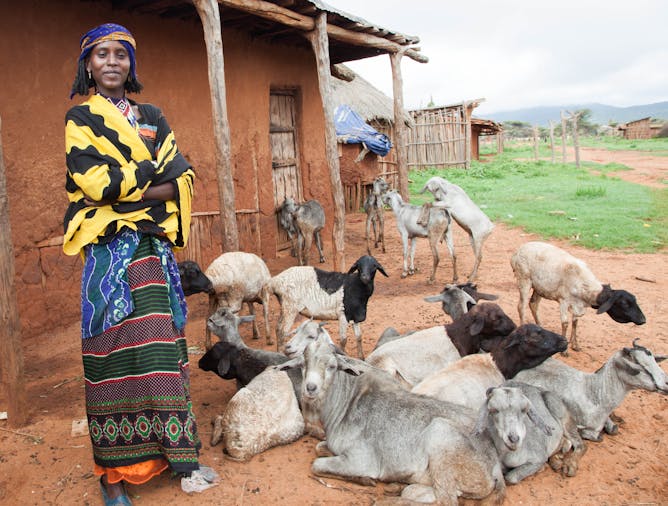|
|
|
Editor's note
|
|
In one of the worst epidemics the UK has ever seen, ash dieback threatens to kill 95% of Britain’s 150m native ash trees and is estimated to cost the economy £15 billion. The disease – caused by a fungus and introduced to the country through imported saplings – has been met with little resistance by the trees. While the trees may be unable to defend themselves, Nick Atkinson, who came up with the figures, says people aren’t powerless to prevent
this kind of damage.
Research of nearly 200 teenagers has found that many don’t see online abuse as a problem – even posts that are illegal. From revenge porn to hate speech, many of these teenagers considered abusive posts “normal” and thought it unlikely that anyone would get in trouble with the police. In that regard, writes Holly Powell-Jones, they might be right.
Some of the most deadly diseases in the world pass between humans and other animals. When epidemics strike, frantic vaccination efforts are often human-focused, leaving thousands of animals dead. Ebola, for example, has wiped out a third of the world’s chimps and gorillas. But what if we could develop vaccines that worked across species? In a world first, George Warimwe is doing exactly that to tackle Rift Valley Fever, a devastating disease
that affects millions of humans and livestock. He explains how this new approach could save time, money, and lives – of all species.
|
Jordan Raine
Assistant Editor, Environment + Energy
|

|
|
Top stories
|

The lonely Malham Ash at dawn in Yorkshire Dales National Park.
PhilMacDPhoto/Shutterstock
Nick Atkinson, Centre for Ecology & Hydrology
A new study has calculated the tremendous cost of ash dieback to the UK economy.
|

Can’t spot the problem?
Shutterstock.
Holly Powell-Jones, City, University of London
Research into attitudes reveals some startling findings.
|

Soon, this farmer and her goats could be treated with the same vaccine.
ILRI, Zerihun Sewunet/flickr
George Warimwe, University of Oxford
Rift Valley Fever infects millions of humans and livestock in Africa and Arabia. To fight it, scientists are developing a first of its kind vaccine that can be used on humans and animals.
|
Business + Economy
|
-
Annabel Bligh, The Conversation ; Indrajit Roy, University of York
Part five of India Tomorrow takes a look at India’s economy.
-
Amanda Klekowski von Koppenfels, University of Kent
Taxation is not the only financial burden for overseas Americans.
|
|
Environment + Energy
|
-
Gillian Foulger, Durham University
Pumping high-pressure fluid into fault lines causes them to slowly slip, increasing the pressure on more distant rock and inducing earthquakes far away.
-
Sallyann Mellor, Staffordshire University
The industry relies on traditional family knowledge so it has been resistant to a culture of health and safety.
|
|
Politics + Society
|
-
Megan O'Neill, University of Dundee; Liz Aston, Edinburgh Napier University
In Scotland, researchers have been at the heart of police reforms – all very different to south of the border.
-
Ella Tennant, Keele University
History tells us there were eight women who ruled as empresses of Japan, but since reforms of the constitution in 1947, only a man can inherit the throne.
|
|
Health + Medicine
|
-
Jeremy Howick, University of Oxford
Evidence for the benefits of empathy in healthcare is mounting.
-
George Warimwe, University of Oxford
Rift Valley Fever infects millions of humans and livestock in Africa and Arabia. To fight it, scientists are developing a first of its kind vaccine that can be used on humans and animals.
|
|
Science + Technology
|
-
Susan Hazel, University of Adelaide
Horses can stand on three legs and rest the other leg. They can change the leg they rest so that all of their legs get a chance to have a break.
-
Tomasz Liskiewicz, Manchester Metropolitan University
Once called 'the most important subject no one has head of', tribology is now a key part of the fourth industrial revolution.
|
|
Education
|
-
Simon Duncan, University of Bradford
Despite what the statistics suggest, many teenage parents say having a baby has transformed their lives.
|
|
| |
Featured events
|

|
Room 301, WKH, Whiteknights, PO Box 217, Reading, Reading, RG6 6AH, United Kingdom — University of Reading
|

|
East Road, Cambridge, Cambridgeshire, CB11PT, United Kingdom — Anglia Ruskin University
|

|
St Helens Road, Ormskirk, Lancashire, L39 4QP, United Kingdom — Edge Hill University
|

|
Iris Murdoch Conference Suite, Iris Murdoch Building, University of Stirling , Stirling, Stirling, FK9 4NF , United Kingdom — University of Stirling
|
|
|
|
| |
| |
| |
| |
| |
|
|
|
|
|
|
|